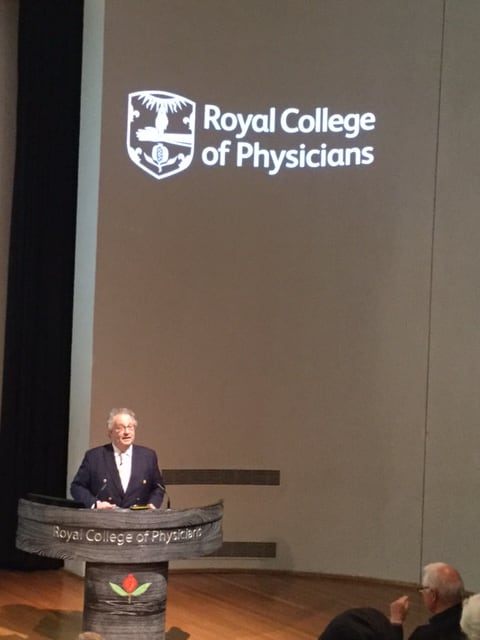Speaking at a lecture organised by the Royal College of Physicians in London last week, professor of endocrinology at Oxford University John Wass said a series of measures would go a long way to easing the obesity issue.

Key to his strategy was the role food and drink manufacturers played not only in their approach to product formulation but the dialogue they maintained with the UK government.
“This is a complicated field and requires a joined-up strategy that involves many different governmental departments. Obviously, the department of health, sport, transport and treasury all need to be involved.”
Referring to the recent government’s action plan on childhood obesity, professor Wass acknowledged that it was a step in the right direction.
However, in discussing the soft drinks industry levy and recommendations for reformulation he said: “In the past, the UK government has tried to introduce various programmes, which are of a voluntary nature.”
“This is something that is quite difficult and a lot of companies have adhered to this, but a few haven’t. I think on the whole they haven’t been particularly successful.”
Innovate to improve health
Wass, who was head of endocrinology at the Oxford Centre for Diabetes, Endocrinology and Metabolism at Churchill Hospital Oxford until 2011, added that to their credit a lot of drink companies were in the process of reducing the amount of sugar in their products.
But he challenged food and drink manufactures to be more inventive in their reformulation approach after some suggested significant change in product make-up could harm business development and profitability.
“What we’ve got to do is to be inventive about this and say that if you cut down on sugar you can produce products that may lead the world,” he said.
“What we’ve got to do is innovate, and help businesses try to make a profit out of what we’re trying to do in improving the health if the nation.”
He presented current figures that identified 30% of children’s daily sugar intake as coming from sugary soft drinks. In the UK, children consume three times more sugar than recommended - more than any other country in Europe.
He also identified a lack of action regarding advertising in the government’s obesity plan. Current laws on advertising allow the advertisement of food and drink products to children before 9pm.
“Studies have shown marketing has a huge influence on children’s food and drink choices,” Wass explained. “Research has shown that such a ban would reduce the adverts seen by children by 82%.”
“What we want to see is a ban on this kind of advertising. This is quite complicated as it’s not only television. We feel this is something that needs to be tackled, as marketing influences children’s choice.”
